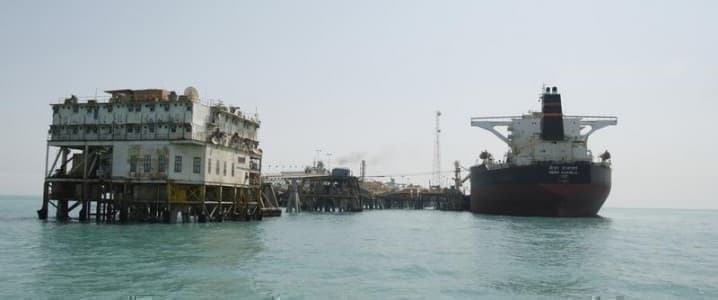When Iraq introduced Basrah Medium into its portfolio of crude grades, it was believed that a stricter delineation of qualities could finally put an end to Baghdad’s perennial challenge of maintaining quality parameters. As it seems, however, that optimism has fizzled out completely by now. According to several media reports, the Iraqi state oil marketer SOMO would discontinue the practice of setting official formula prices for Basrah Light, up to now arguably the most prominent crude stream coming out of Iraq. Basrah Light might not have been the largest in terms of volumes per se, despite SOMO’s enthusiasm in the beginning of 2021 with repeated vows to stick to the stipulated qualities and maintain a robust stream of lighter barrels, the newly introduced Basrah Medium effectively overtook Basrah Light and became the number one product sold.
The news did not just come out of nowhere, in early October buyers started noticing that Basrah Light was not included in the list of grades that they could nominate for calendar year 2022. At that point most of the speculation revolved around Iraq prioritizing its lighter molecules for domestic refining as most of its downstream assets remain relatively unsophisticated to cater for the needs of the domestic market. Whilst the 140kbpd Karbala Refinery is expected to come online in late 2022 and the 70kbpd expansion project at the Basrah Refinery (new diesel hydrotreatment and a VGO hydrotreater and catalytic cracker), with both increasing transportation fuel output, Iraq still needs to keep its domestic crude quality as light as possible.

It would seem somewhat dubious that an entire crude stream should be scrapped just because there would be some 200kbpd of refining capacity coming onstream in the upcoming years. After all, Basrah Light exports averaged 2.1 million bpd in 2020 and even after Basrah Medium was introduced in early January 2021 to the all-Iraqi line-up Basrah Light exports still averaged some 850kbpd (see Chart). Assuming that the lightest barrels from today’s Basrah Light stream would end up in domestic refineries and that the rest would inconspicuously end up in Basrah Medium, one would assume that quality-wise there is no big difference between the two.
In terms of crude export strategies, for long one of Iraq’s main headaches has been the maintenance of stipulated qualities. In the beginning of the 2010s, Iraq only had Basrah Light as an export stream, yet with production getting increasingly heavier SOMO was compelled to spin off Basrah Heavy into a separate grade in 2015. At this point Basrah Light still had a contractual density of 34° API – it was very rarely maintained but the quality de-escalating scheme that SOMO included in its contracts meant that buyers did not have a reason to complain and just went with the flow. If anything was openly discussed, it was rather the third-party trading clauses that angered the Iraqis as they wanted to avoid having a market for Basrah grades.
The introduction of Basrah Medium and the overall reorganization of its streams launched this January allowed SOMO to tighten up the contractual stipulations of its term deals. The default density of Basrah Light was lowered by 1 degree to 33° API, moreover, the quality de-escalation was revised (so that lowering the price works only for every single integer and not for every tenth of a degree as previously) with the net effect being overwhelmingly to the benefit of SOMO. Yet irrespective of the policy changes, Iraq can do very little about its production turning heavier. The initial Basrah Light density of 34° API was a reflection on the geological formation that was dominant over the 2000s, namely the fields developing their Lower Cretaceous Zubair reservoirs, most of which were of that quality. However, with legacy fields like Rumaila or Zubair sliding down the maturity scale and with newer assets like West Qurna and Halfaya coming to the spotlight - all of which are 28-30 API and essentially replicate Basrah Medium which according to SOMO test reports should be 27.9 API and wield a sulphur content of 3% - it was inevitable that Basrah Light loses out in some form or fashion.
Realistically speaking, SOMO could have extended the current modus operandi for much longer, after all, most of market participants already knew the quality parameters inherent in the Basrah streams. Moreover, Iraqi grades became even more attractive recently as Iraq bucked the Saudi trend of pricing (always publishing its monthly OSPs only after Saudi Aramco did theirs) and offered its grades at discounts to Saudi grades. Once Basrah Light is cleared from the term contract options, most of barrels that currently constitute the stream would end up in Basrah Medium – chances are that a huge 1.7-1.8 million bpd stream might need to be discounted vs today’s prices. For most of 2021, Basrah Light OSPs for Asian customers, the main gauge of the grade’s pricing, were a solid $1 per barrel higher than those of Basrah Medium. The fact that SOMO did it only underscores its structural inability to maintain a stream light enough that the overall market would still appreciate it as the good old Basrah Light.
By Gerald Jansen for Oilprice.com
More Top Reads From Oilprice.com:
- OPEC+ Meeting Ends: Cartel Won't Produce Extra Crude
- The Energy Crunch Is Adding Billions To Oil Tycoons’ Net Worth
- The Oil Omen: First Large U.S. Shale Driller To Pledge Flat Output In 2022


















